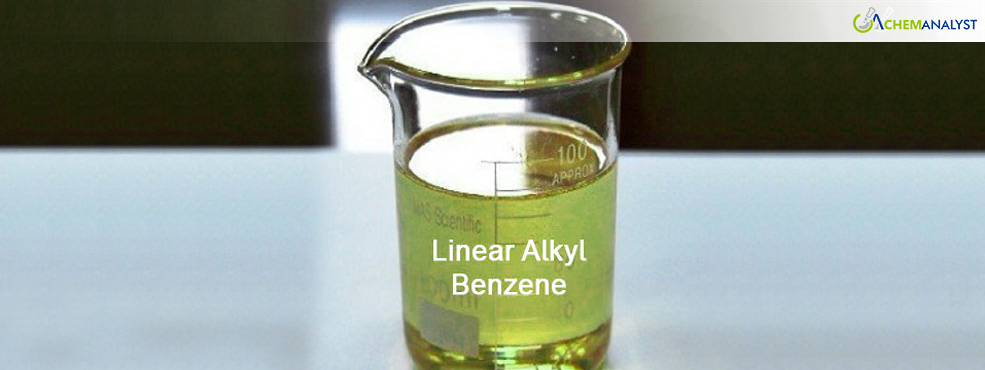Welcome To ChemAnalyst

The Linear Alkyl Benzene market in Saudi Arabia traversed on the upward trail consecutively for the second month causing the prices in January to register a 3% growth from last month prices which had been the highest in 2021. The manufacturers associated the gain in price values with the upward rallying raw material costs.
The supplies for Benzene, which is the feed material for Linear Alkyl Benzene, have become critically short during January on account of upstream crude oil supply uncertainties in line with underproduced daily quotas by OPEC+ countries, Libya and Kazakhstan. The insurgency in Libya in the early week of January closely followed by a major pipeline leakage resulted in a drop of 500,000 bpd crude oil supply from the country. Similarly, an unrest situation that lasted 10 days in Kazakhstan’s oil-rich regions during early January brought a decline in the country’s oil production to a significant extent, thereby pushing the crude oil prices on the upside. Consequently, a jump in prices in all the crude oil value chains including benzene was observed in the global market. Saudi Arabia, which is a major importer of benzene, felt the wrath of the supply shortages in the form of high import prices and dropped import frequencies.
On the other hand, the major demand driver, surfactant and detergent sector, increased its enquiries at a remarkably high rate seeing the panic-buying sentiments amid consumers who looked forward to piling up detergents in rising concerns over cleanliness and hygiene in the current climate when Omicron cases are gradually increasing. This has put immense pressure on the manufacturers, thus giving room for positive corrections in Linear Alkyl Benzene prices.
As per ChemAnalyst, the Linear Alkyl Benzene market is expected to remain bullish in the next month due to continued constraints in benzene feedstock availability and high import prices. Though the refineries in Libya and Kazakhstan have resumed operations, its impact on the value chain prices will take time to seep in. The demand from the downstream detergent sector is expected to stride up further until the resurging Covid impact recedes. Hence, a rise of 1-2% in the average prices is likely to persist in February. Furthermore, the feedstock shortage may result in the decline of production output for a brief period thereby inducing a distortion in supply-demand fundamentals in the country.
We use cookies to deliver the best possible experience on our website. To learn more, visit our Privacy Policy. By continuing to use this site or by closing this box, you consent to our use of cookies. More info.
